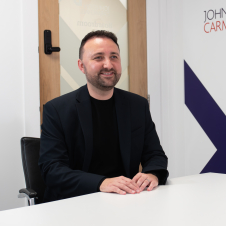The Government confirmed its plans in the Autumn 2021 Budget for the basis period reform which will take effect from 6 April 2024. This will change the way in which self-employed traders are taxed from 6 April 2024. Self-employed traders include:
- Individuals with a profession or vocation
- Partners in trading partnerships
- Other unincorporated entities with trading income, such as trading trusts and estates and non-resident companies with trading income charged to Income Tax
These measures will only affect businesses which draw up accounts to a date which is different to 31 March or 5 April. If your business falls into this category, you will likely want to put measures in place to prepare for this reform.
Currently, businesses which draw up accounts to 31 March or 5 April will align with the tax year end and no changes will be necessary. Businesses which don't align with the tax year end will either have to amend their accounting period or have to apportion profits between two sets of accounts (using the current year end) to form one set of accounts just for tax purposes — see below. The latter is likely to lead to complications (for example, when partners join and leave, and how to allocate tax relief between periods). This could be a complex and lengthy process. It is expected that most business affected by this change will choose to align their accounting year end with the tax year (i.e. 31 March or 5 April).
How will the profits be apportioned?
Businesses with accounting year ends of 31 March or 5 April may continue to use their accounting profits for tax purposes.
Under the new regime businesses will be able to continue to use their original accounting date, however they will need to apportion their profits and losses into each tax year just for tax purposes. For example, from the 2025/26 tax year (i.e the year after the transitional year), the business will be taxable on their profits arising from 6 April 2025 to 5 April 2026 regardless of their accounting year end date.
For example, a business with a year end of 30 September will need to apportion their profits so that only those arising in the tax year are included for tax purposes. In this case, a business with an accounting period running from 1 October to 30 September each year will need to apportion their profits for a tax year as the last six months for one accounting period and the first six months for the following accounting period.
This will create an additional administrative burden for such businesses and could be a complex process if profits tend to fluctuate and also where valuable tax reliefs (e.g. capital allowances) are available.
There are practical issues too. For businesses with an accounting year end later in the year, it may be unlikely that their accounts are sufficiently up to date to cover the period up to the tax year end before the filing deadline. In such circumstances, the taxpayer must estimate a portion of their profits arising in the tax year and mark their tax return as provisional before submitting to HMRC. Once final accounts have been prepared, the provisional returns must be amended to report the final confirmed figures, before being re-submitted to HMRC. Submitting provisional returns which have to be amended is likely to increase compliance costs.
How it will work
HMRC announced a one year 'transition period' before the reform takes place, applying for the year starting 6 April 2023 to allow businesses to catch up and prepare for these changes.
To enable the move to the new tax basis whether the accounting period changes or not, there will be one transitional year where the assessable profits will include the profits for the relevant accounting year, plus the apportioned profits for the remainder of the tax year.
For example, say a partnership has an accounting year end of 30 September. The individual partners will be taxed on the profits arising for the basis period to 30 September 2023 (as usual). They will then be taxed on an additional component of transition profits running from 1 October 2023 to 5 April 2024. This could greatly increase the tax burden for higher earners. Cash flow will also be an important consideration and the basis period reform changes should be planned for now.
In order to ease the burden of any additional tax coming into charge in tax year 5 April 2023, HMRC will automatically spread these "transitional" profits over five years, with taxpayers being able to bring any profits forward if they wish. Taxpayers will also be able to utilise any overlap relief available to them during this period to help alleviate any tax burden.
Practical considerations
As can be seen, in the short term these basis period reforms could provide cashflow issues for taxpayers with businesses which have accounting year ends that are not in line with 31 March / 5 April, especially during the transitional 2023/24 tax year where profits will be considerably increased as a result of the transitional profits. There will also be substantial administrative burdens as businesses may be required to estimate a portion of their profits each year to align with the tax year, as well as the additional resources spent submitting provisional and revised tax returns should they choose not to align their accounting period with the tax year end.
One simple solution is to change the accounting year end to either 31 March or 5 April. That may not be appropriate for some businesses, but there will be a requirement to apportion profits and submit potentially provisional tax returns for those who do not change their accounting date. This may be complex depending on the nature of the business. Early engagement with the new rules is essential to understand what it means for your own business.
Read the next section of our tax planning guide: Your family or return to the main page.
View our other services
Arrange a free consultation with the team now
Have a general enquiry? Get in touch.


